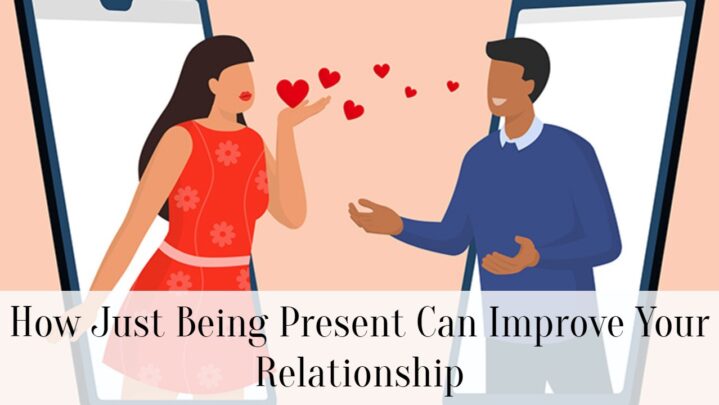The expectation of being present in a relationship is one’s self-awareness and consciousness, even if it is only a feeling of rest free from thought, activity, or control.
There are no criteria for participation, but some individuals find it difficult to handle several agendas because of the number of thoughts racing through their brains, diversions, and a degree of fidgetiness.
In partnerships separate from the connectedness that propels everyone through the chaotic environment, the participants want undivided attention.
A loved one can tell when they are the focus if they are getting all the attention, and whether they are being heard honestly when they are in the moment.
People need to connect to themselves and gain awareness to focus on relationships with the depth that presence demands.
What does being present in a relationship mean?
It takes presence to learn how to be in a relationship properly. Being present entails being conscious of how you are interacting with others.
Passing judgment or expressing an ego is not allowed when one is in the moment. Both objectives and distractions are absent. The goal is just to experience a “soul-to-soul” connection with the other person.
Tips on how to be present in a relationship
Self-care routine
You must make sure to practice frequent self-care. You may intentionally focus on someone else in this way. Writing in a journal is a wonderful way to evaluate oneself.
Once you’ve finished writing, go back to the entry from the day before to understand better where you could be falling short and how to become more present in a relationship.
2. Create a space for mindfulness and meditation
Many mindfulness or meditation techniques can be used, but they all aim to bring you into the present moment.
Giving someone else your full, undivided attention will be easier once you become cognizant of this area.
3. Texting is acceptable.
Being present in a relationship can be facilitated via texting.
Sending encouraging texts throughout the day with open-ended questions or topics that pique the other person’s interest might encourage active listening and conversation when the phones are put away at night when you’re apart.
Because you have to be careful about the stuff you provide, this acts as a virtual presence that gets the other person ready for an evening of “presence.”
4. Share secrets
Ensure your spouse is the first person you confide information to, including reactions to things, updates on significant life events, opinions, and private information.
Doing this means you’re actively trying to be there for your spouse by forging a stronger bond.
5. Don’t forget to pay attention
Many individuals are chronic overachievers, which makes learning how to be present in a relationship necessary.
One issue is that some people try to focus on the present moment with someone by asking questions, but they fail to grasp that active listening is a skill that requires practice.
When expressing themselves, they need to be energetically supported and listened to.





